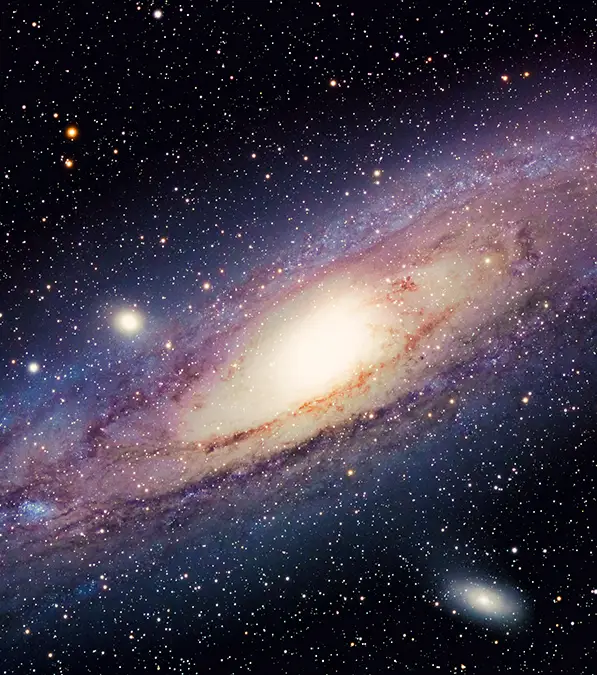


For a long time now, astronomers have been wrapped up in a debate that goes way beyond the round Earth vs. flat Earth debate.
The ultimate question is: What is the shape of the universe and the rules that control the parameters of space and time?
Is the universe one large expansive space? Are their borders or does it simply loop back on itself?
New research conducted by a new group of cosmologists known as the COMPACT Collaboration may hold the answer.
Advert
The team found that the 'topology' of the universe - a type of geometry that can be stretched and moved - seems far from straightforward.

By analysing the remaining 'glow' from the Big Bang all those years ago, scientists concluded the universe could have quite an exotic layout if it twists just the right way.
While the researchers haven't confirmed an exact shape, the best way to imagine it is like a giant Hall of Mirrors attraction at an amusement park. However, instead of mirrors, it’s space-time that bends indefinitely in every direction.
The American Physical Society (APA) described the effect as a 'hall of mirrors' adding that 'lines of site within a 3-torus form closed loops that return to the viewer, so everything appears to repeat infinitely.'
In a summary of the paper, APA described it as a cube.

As APA explained in the paper's summary, it would be like if there was a cube on which each set of opposing sides were connected.
This means that no matter how big the universe seems, if you could look far enough, you'll end up seeing the back of your own head.
The findings have been published in the journal Physical Review Letters.
Like all things as complex as our universe, it's important to remember that any research studies the potential of what is possible rather than confirming anything exactly.
In an interview, Columbia cosmologist Oliver Philcox, who wasn't part of the research, pointed out that the amount of theories out there means any informed guess is worth considering.
'There’s a lot of possible ways the universe could be topologically connected and it’s hard to rule them out,' he stated.